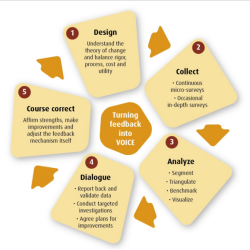The value of stakeholder engagement, and why you should all be doing it
Interested in measuring your impact? Of course you are. We all are! So how do we do it? Well, there are several possible ways, but what is critical is that we make the perspectives of the people who are meant to enjoy the benefits of a service visible to decision makers in the system. This[…]







